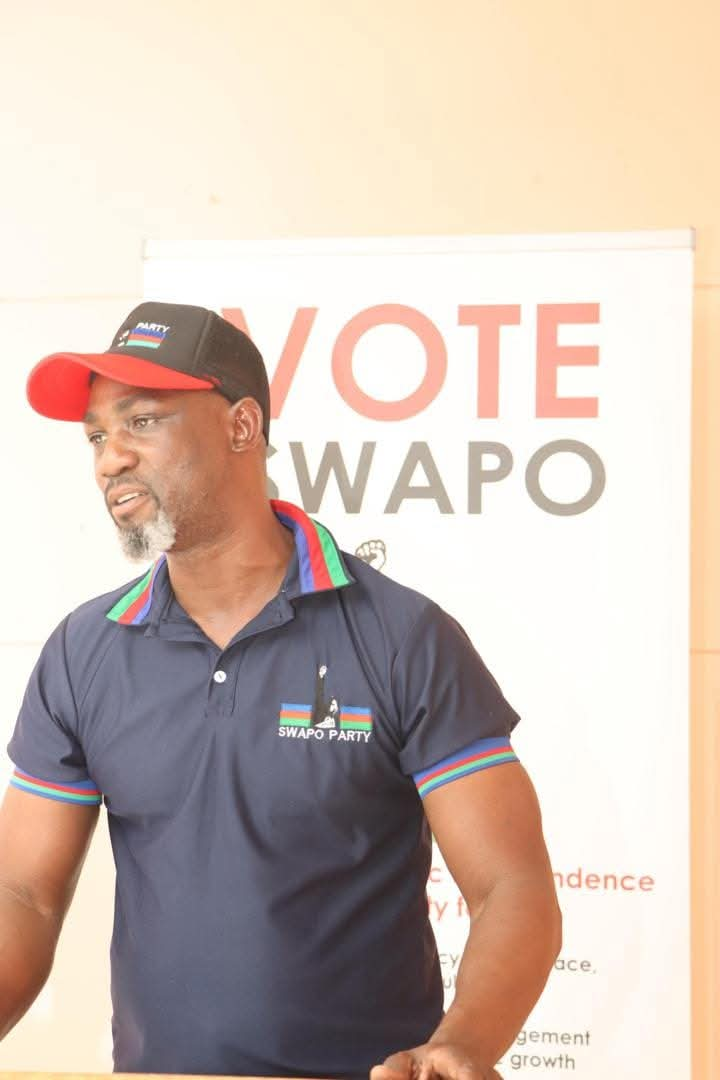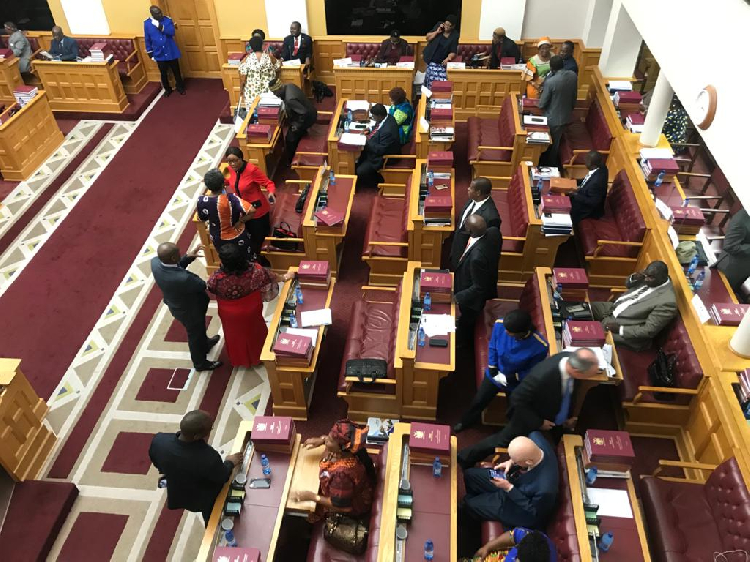THE government of Ireland has donated one million euros (about N$10 million) to keep alive a feeding programme for orphans in northern Namibia that was on the brink of collapse due to a lack of funds.
The donation comes after an appeal from the World Food Programme (WFP), the United Nations agency operating the scheme. Ireland was the first country to confirm a donation to the Namibian orphans project since the WFP launched an appeal for donations last November.The WFP said that it would be forced to cut food aid to some 90 000 vulnerable children and orphans in northern Namibia due to a funds crunch sparked by shifting donor focus.”It is critical to keep this vital pipeline of food aid operating and ensure that food continues to reach these most vulnerable children,” Ireland’s Minister for Food, Brendan Smith, said in a statement issued in the Irish capital of Dublin last week Thursday.The months until the next harvest in April and May are critical for the orphans and vulnerable children (OVCs).The food aid agency is facing a shortfall of about US$4 million (about N$28 million) for its feeding programme in Namibia until April this year, and needs a total of US$9 million (N$63 million) until the end of 2007.According to a WFP official in the agency’s Windhoek office, the Irish government has already paid the money.”We are very pleased with their donation and the money is already in the bank so we can continue with the feeding programme for now,” Baton Osmani told The Namibian yesterday.”The other good news is that Luxembourg has in the meantime pledged 230 000 euros.”WFP also faces a funding shortfall of US$48 million for programmes in Lesotho, Malawi, Mozambique, Swaziland, Zambia and Zimbabwe that assist about 4.5 million people.”As new problems emerge in different parts of Africa and the rest of the world, donor focus has shifted away from southern Africa and all our programmes across the region have been affected by the reduced availability of resources,” the WFP country representative in Namibia, John Prout, told the UN news service IRIN recently.WFP has been working with the Namibian Government since the middle of 2005 to set up programmes to feed orphans and vulnerable children in the six northern regions.The feeding started around April 2006.The food aid agency provides a monthly take-home ration to each child registered with the programme, which includes maize meal, a blend of maize and soya and cooking oil.The programme is running under the auspices of the Ministry of Gender Equality and Welfare.The children are reached by the existing network of the Roman Catholic Church of HIV-AIDS counsellors and volunteers in villages with the support of the Namibia Red Cross Society, the Lutheran Church’s HIV-AIDS programme and local headmen and village elders.Orphans and vulnerable children in the north-eastern Kavango Region, where 7 000 have been receiving food rations since the end of April, were the first beneficiaries.The Caprivi, Oshikoto, Ohangwena, Omusati and Oshana regions will also benefit from the two-year programme, Southern Africa continues to suffer from ongoing problems of poverty, food insecurity and the HIV-AIDS pandemic and has more than 3,3 million orphans.In its ‘2006 Report on the Global AIDS Epidemic’ released last month, UNAIDS estimated an adult HIV prevalence rate of 21.3 per cent in Namibia, while the number of orphans and vulnerable children stood at 150 000 by the end of 2005.The latest Irish donation brings total funding provided by Ireland’s agriculture ministry and the WFP to 8,5 million euros during 2006.Ireland was the fifth highest per capita contributor to WFP during 2006.Additional reporting by AFPIreland was the first country to confirm a donation to the Namibian orphans project since the WFP launched an appeal for donations last November.The WFP said that it would be forced to cut food aid to some 90 000 vulnerable children and orphans in northern Namibia due to a funds crunch sparked by shifting donor focus.”It is critical to keep this vital pipeline of food aid operating and ensure that food continues to reach these most vulnerable children,” Ireland’s Minister for Food, Brendan Smith, said in a statement issued in the Irish capital of Dublin last week Thursday.The months until the next harvest in April and May are critical for the orphans and vulnerable children (OVCs).The food aid agency is facing a shortfall of about US$4 million (about N$28 million) for its feeding programme in Namibia until April this year, and needs a total of US$9 million (N$63 million) until the end of 2007.According to a WFP official in the agency’s Windhoek office, the Irish government has already paid the money.”We are very pleased with their donation and the money is already in the bank so we can continue with the feeding programme for now,” Baton Osmani told The Namibian yesterday.”The other good news is that Luxembourg has in the meantime pledged 230 000 euros.”WFP also faces a funding shortfall of US$48 million for programmes in Lesotho, Malawi, Mozambique, Swaziland, Zambia and Zimbabwe that assist about 4.5 million people.”As new problems emerge in different parts of Africa and the rest of the world, donor focus has shifted away from southern Africa and all our programmes across the region have been affected by the reduced availability of resources,” the WFP country representative in Namibia, John Prout, told the UN news service IRIN recently.WFP has been working with the Namibian Government since the middle of 2005 to set up programmes to feed orphans and vulnerable children in the six northern regions.The feeding started around April 2006.The food aid agency provides a monthly take-home ration to each child registered with the programme, which includes maize meal, a blend of maize and soya and cooking oil.The programme is running under the auspices of the Ministry of Gender Equality and Welfare.The children are reached by the existing network of the Roman Catholic Church of HIV-AIDS counsellors and volunteers in villages with the support of the Namibia Red Cross Society, the Lutheran Church’s HIV-AIDS programme and local headmen and village elders.Orphans and vulnerable children in the north-eastern Kavango Region, where 7 000 have been receiving food rations since the end of April, were the first beneficiaries.The Caprivi, Oshikoto, Ohangwena, Omusati and Oshana regions will also benefit from the two-year programme, Southern Africa continues to suffer from ongoing problems of poverty, food insecurity and the HIV-AIDS pandemic and has more than 3,3 million orphans.In its ‘2006 Report on the Global AIDS Epidemic’ released last month, UNAIDS estimated an adult HIV prevalence rate of 21.3 per cent in Namibia, while the number of orphans and vulnerable children stood at 150 000 by the end of 2005.The latest Irish donation brings total funding provided by Ireland’s agriculture ministry and the WFP to 8,5 million euros during 2006.Ireland was the fifth highest per capita contributor to WFP during 2006.Additional reporting by AFP
Stay informed with The Namibian – your source for credible journalism. Get in-depth reporting and opinions for
only N$85 a month. Invest in journalism, invest in democracy –
Subscribe Now!










